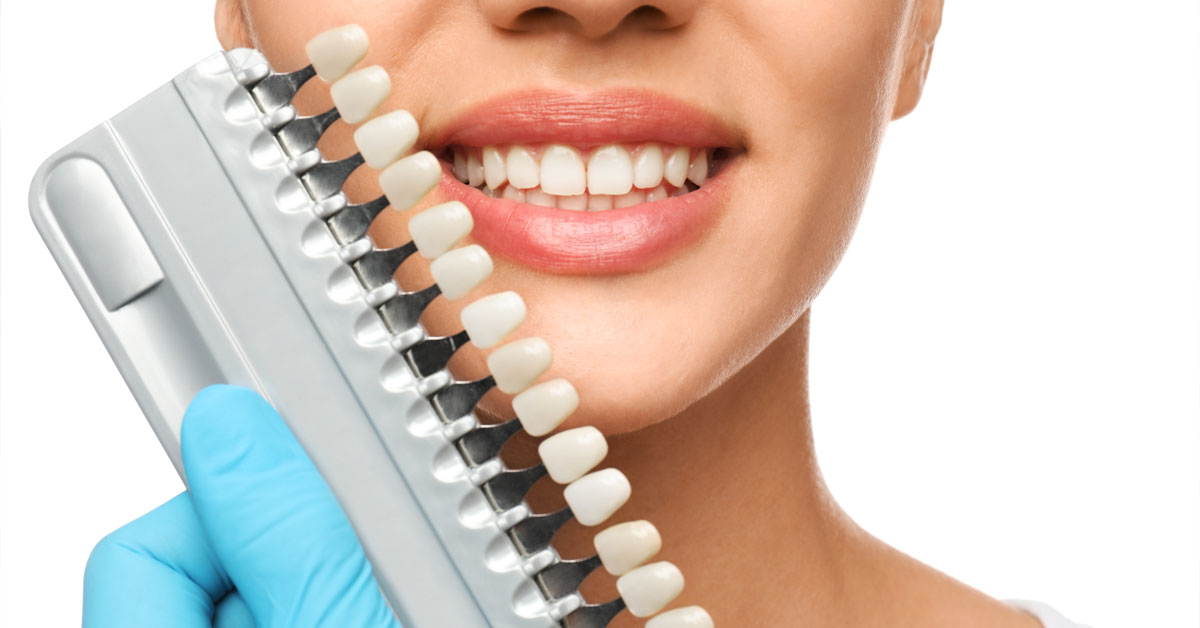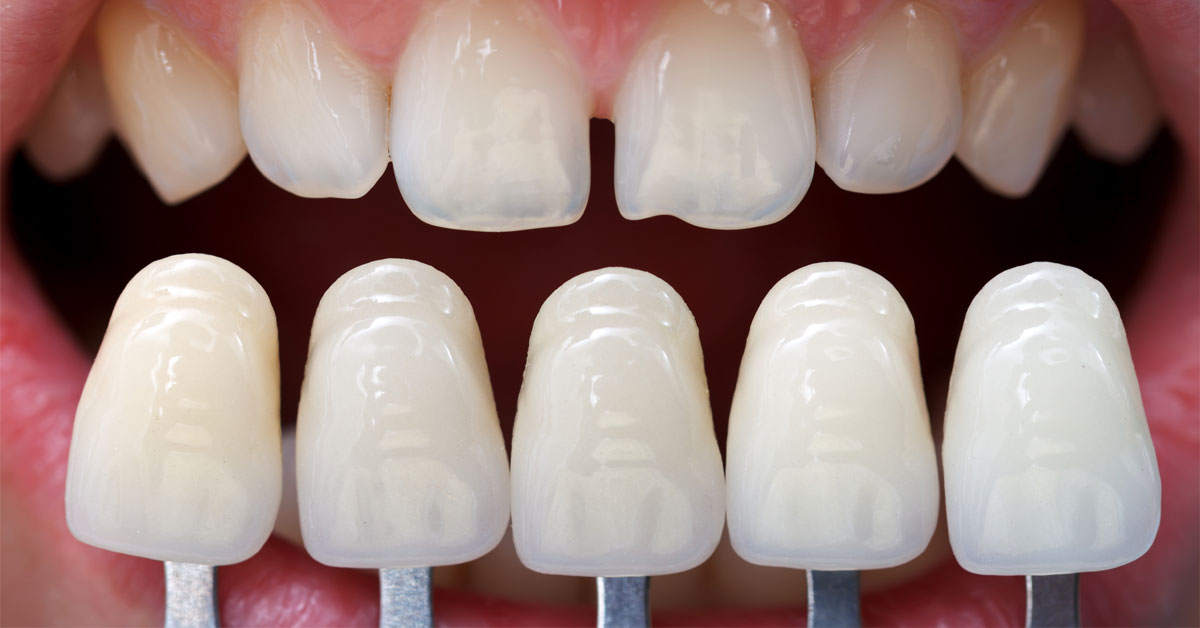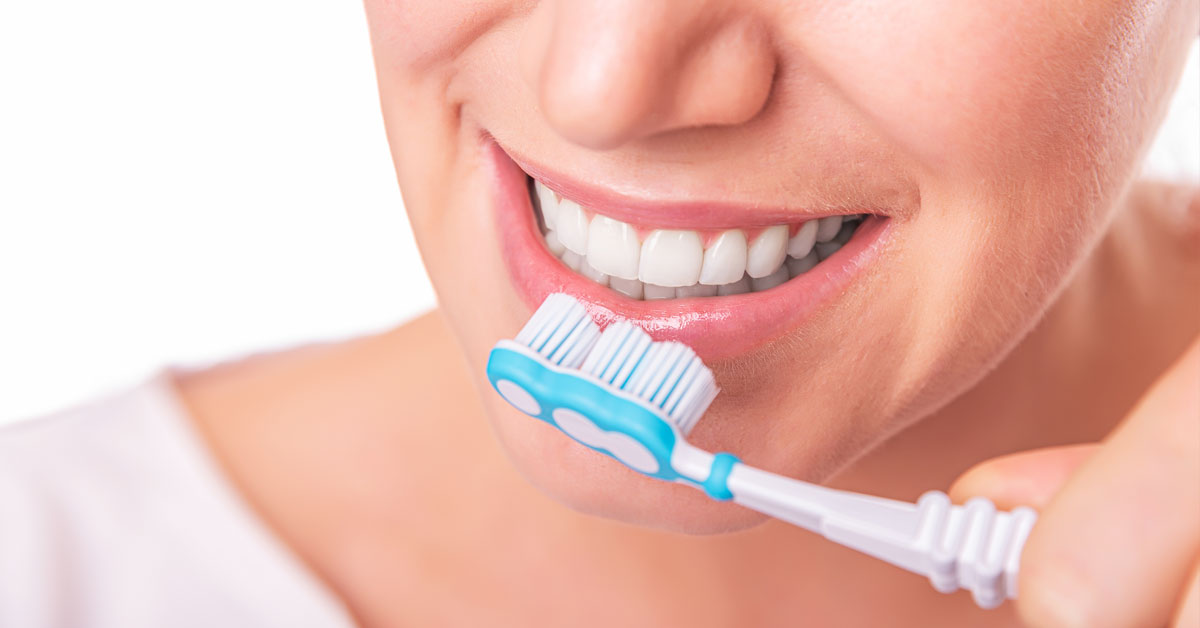How Long Do Veneers Last?
Are you considering getting dental veneers to enhance the appearance of your teeth? One important question you may have is How long they will last. The lifespan of dental veneers depends on various factors, including the material used and how well you care for them. So, how long can you expect your veneers to last?
Veneers, whether made of porcelain or composite resin, are custom-made shells that are bonded to the front surface of your teeth. They can dramatically improve the appearance of stained or discolored teeth, as well as fix chipped, uneven, or misaligned teeth. But are they a long-lasting solution?
The longevity of veneers varies depending on the type of material and individual care. According to the American Dental Association, veneers typically last about 10 years, but they can last anywhere from 10 to 30 years with proper care.
Porcelain veneers are known for their durability and can last up to 20 years or more with good maintenance, while composite resin veneers may last around 5 to 10 years
In this article, we will explore the durability of dental veneers and discover the factors that can influence their lifespan.
From the types of veneers available to the proper care and maintenance required, we will provide you with all the information you need to make an informed decision about veneers and their longevity.
Key Highlights
-
Dental veneers, whether porcelain or composite resin, can dramatically improve the appearance of your teeth.
-
The lifespan of veneers can range from 10 to 30 years, depending on various factors.
-
The type of veneer chosen, the quality of the veneers, and your lifestyle habits can impact their longevity.
-
Proper care and maintenance, including regular oral hygiene practices and avoiding habits that can damage the veneers, are essential for extending their lifespan.
-
Alternatives to veneers, such as dental bonding, teeth whitening, or Invisalign, may also be considered based on individual needs and preferences.
When are dental veneers used?
Dental veneers are a versatile cosmetic dental solution used to address various dental concerns. They serve as a popular option for individuals looking to improve the appearance of their teeth without the need for extensive dental procedures.
Here are some common reasons for getting dental veneers:
-
Stained or Discolored Teeth: Dental veneers are often used to restore teeth that are stained or discolored due to medications, root canal treatments, or the consumption of certain beverages like red wine, coffee, or tea. Veneers can provide a natural, bright, and white smile.
-
Chipped or Damaged Teeth: Teeth that are chipped, cracked, or have minor damage can be effectively corrected with dental veneers. The veneers cover the imperfections, restoring the tooth’s shape and appearance.
-
Uneven or Misaligned Teeth: Veneers are an excellent option for individuals with uneven or misaligned teeth who do not want to undergo orthodontic treatment. By applying veneers to the front surface of the teeth, the dentist can create a straighter and more aligned smile.
-
Small Gaps between Teeth: Dental veneers can be used to close small gaps between teeth, giving a more uniform and aesthetically pleasing smile.
| Condition | Problem | Solution |
|---|---|---|
| Stained or Discolored Teeth | Teeth are discolored due to various factors. | Veneers restore the color and brightness of teeth. |
| Chipped or Damaged Teeth | Teeth have chips, cracks, or minor damage. | Veneers cover the imperfections, restoring tooth structure. |
| Uneven or Misaligned Teeth | Teeth are uneven or misaligned. | Veneers create a straighter and more aligned smile. |
| Small Gaps between Teeth | Teeth have small gaps in between. | Veneers close the gaps, creating a harmonious smile. |
How are veneers fitted?
The process of getting veneers involves several steps to ensure a precise and comfortable fit. Here is an overview of the veneer application process, including veneer preparation and bonding:
-
Impression of the teeth: First, your dentist will take an impression of your teeth using dental putty or digital scanning technology. This impression is then sent to a laboratory where custom veneers will be made to match the shape, size, and color of your teeth.
-
Veneer preparation: Before placing the veneers, a small amount of enamel is removed from the tooth surface. This step is necessary to create space and ensure a smooth appearance once the veneers are bonded. The amount of enamel removed is minimal and will be discussed with you by your dentist.
-
Temporary veneers (optional): In some cases, temporary veneers may be placed while waiting for the permanent veneers to be fabricated at the laboratory. These temporary veneers provide protection and aesthetics in the meantime.
-
Veneer fitting: Once the custom veneers are ready, your dentist will carefully place them on your teeth, ensuring a proper fit and alignment. They will shape and trim the veneers as needed to achieve the desired results.
-
Veneer bonding: To ensure a secure and long-lasting bond, a special dental adhesive is used to attach the veneers to your teeth. Your dentist will apply the adhesive and carefully position the veneers in place. A curing light is then used to harden the adhesive and bond the veneers.
-
Final adjustments: After the veneers are bonded, your dentist will make any necessary final adjustments for comfort and proper bite alignment. This may involve smoothing any rough edges and ensuring that your bite feels natural and comfortable.
A follow-up visit is usually scheduled to check the placement and comfort of the veneers. This visit allows your dentist to address any concerns and make minor adjustments if needed.
The benefits of veneers
Dental veneers offer numerous advantages that go beyond enhancing the appearance of your teeth. These thin shells not only improve the color and shape of your teeth but also provide protection to the underlying tooth structure. Let’s explore the cosmetic benefits and advantages of dental veneers more closely.
Natural-Looking Appearance
Veneers, especially those made of porcelain, have a natural-looking appearance that mimics the translucency of real teeth. The material reflects light similarly to tooth enamel, resulting in a seamless blend with the surrounding teeth.
This natural aesthetic is highly sought after by individuals looking to achieve a beautiful and harmonious smile.
Enhanced Color and Shape
One of the key advantages of dental veneers is their ability to dramatically improve the color and shape of your teeth. Whether you have teeth that are stained, discolored, chipped, or misaligned, veneers can effectively mask these imperfections and create a more symmetrical and aesthetically pleasing smile. With veneers, you can achieve the smile you’ve always wanted and boost your self-confidence in the process.
Stain Resistance
Porcelain veneers, in particular, offer superior stain resistance compared to natural tooth enamel. This means that you can enjoy a beautiful, white smile that resists discoloration from everyday activities such as consuming coffee, tea, or red wine.
However, it’s still important to practice good oral hygiene and avoid excessive consumption of stain-causing substances to maintain the longevity of your veneers.
Protection of Underlying Tooth
Aside from their cosmetic benefits, dental veneers also provide an additional layer of protection to the underlying tooth structure. By covering the front surface of your teeth, veneers offer a barrier against external elements and can help prevent further damage or erosion.
However, it’s essential to note that veneers do not provide added protection against cavities and decay, so regular oral hygiene practices must be maintained.
Dental Veneers vs. Other Cosmetic Options
| Factors | Dental Veneers | Dental Bonding | Teeth Whitening | Invisalign |
|---|---|---|---|---|
| Aesthetics | Natural-looking appearance, color, and shape improvement | Less natural-looking compared to veneers, limited color and shape improvement for minor cosmetic issues | Improves tooth color but does not address shape or alignment | Primarily for alignment issues, limited cosmetic enhancement |
| Durability | Porcelain veneers: Long-lasting (10-30 years) Composite veneers: Less durable (5-7 years) |
Less durable (5-7 years) | Results vary, may require touch-ups over time | Long-lasting with proper use and maintenance |
| Invasiveness | Minor tooth preparation required | Minimal tooth preparation required | Non-invasive, no tooth preparation | Non-invasive, no tooth preparation |
| Cost | Higher upfront cost | Lower upfront cost | Lower upfront cost | Higher upfront cost |
While veneers offer significant benefits, it’s essential to consider alternative cosmetic options based on your unique dental needs and preferences.
Dental bonding, teeth whitening, and Invisalign are viable alternatives that address specific cosmetic concerns.
Consulting with a dentist will help you determine the most suitable option for achieving your desired results.
Factors affecting how long veneers last
The longevity of veneers can be influenced by several factors that impact their durability and lifespan. It’s important to consider these factors when deciding to get dental veneers and to take the necessary precautions to extend their longevity.
Veneer Type
The type of veneer chosen can significantly affect how long they last. Porcelain veneers tend to have a longer lifespan compared to composite veneers. Porcelain is a durable material that resists staining and maintains its appearance over time.
Veneer Quality
The quality of the veneers also plays a role in their longevity. Well-made veneers from reputable dental labs are more likely to withstand normal wear and tear and maintain their aesthetic appeal. It’s essential to work with a skilled dentist who uses high-quality materials and ensures a proper fit.
Care and Maintenance
Caring for veneers properly is crucial in maintaining their lifespan. Regular oral hygiene practices such as brushing and flossing are essential to prevent plaque buildup and protect the underlying teeth. It’s also important to avoid habits that can damage the veneers, such as biting hard objects or using teeth as tools.
Furthermore, lifestyle choices can impact the durability of veneers. Smoking and consuming stain-causing substances like coffee or red wine can lead to discoloration or deterioration of veneers over time. Therefore, it’s advisable to avoid or limit these habits to preserve the longevity of veneers.
Factors Affecting Veneer Lifespan
| Veneer Lifespan Factors | Description |
|---|---|
| Veneer Type | Porcelain veneers offer longer durability compared to composite veneers. |
| Veneer Quality | Well-made veneers from reputable dental labs have a higher likelihood of lasting longer. |
| Care and Maintenance | Regular oral hygiene practices and avoiding habits that can damage veneers are crucial in maintaining their lifespan. |
| Lifestyle Choices | Smoking and consuming stain-causing substances can impact veneer durability. |
By considering these factors and implementing proper care and maintenance, you can maximize the lifespan of your veneers and enjoy their aesthetic and functional benefits for years to come.
Caring for veneers to extend their lifespan
Proper care and maintenance are essential in extending the lifespan of your veneers. By following a consistent veneer care routine, you can preserve their appearance and functionality for years to come.
Here are some helpful tips for maintaining your veneers:
-
Practice good oral hygiene: Brush your teeth at least twice a day with a soft-bristled toothbrush and fluoride toothpaste. Floss daily to remove plaque and debris that may accumulate between the teeth. This helps prevent gum disease and tooth decay, ensuring the overall health of your veneers.
-
Avoid staining foods and drinks: Certain foods and drinks can stain your natural teeth and veneers. To maintain the color of your veneers, limit your consumption of coffee, tea, red wine, and other highly pigmented beverages. Additionally, avoid foods that may cause staining, such as berries, soy sauce, and tomato-based products.
-
Protect against teeth grinding: If you have a habit of grinding or clenching your teeth, it’s important to protect your veneers from excessive force. Consider wearing a night guard while you sleep to prevent damage caused by teeth grinding or clenching. This can help preserve the integrity of your veneers and prevent premature wear and chipping.
-
Regular dental check-ups: Schedule regular dental check-ups and cleanings to monitor the condition of your veneers. Your dentist will examine the veneers, along with your overall oral health, and address any issues that may arise. These routine visits also provide an opportunity to receive professional cleanings, removing any plaque or tartar buildup that can compromise the appearance and longevity of your veneers.
By following these veneer maintenance tips and incorporating them into your daily routine, you can ensure the longevity and beauty of your veneers. Remember, maintaining good oral hygiene practices and seeking professional dental care are crucial elements of caring for your veneers.
Alternatives to veneers
While veneers are a popular option for cosmetic dental enhancements, there are alternatives available. These alternatives may have different durability and cost considerations compared to veneers.
Dental bonding
Dental bonding is a less expensive and less invasive option compared to veneers. It involves applying composite resin to correct minor cosmetic issues such as chipped or discolored teeth.
The resin is applied directly to the teeth and shaped to match the natural tooth color and contour. The bonding material is then hardened using a special light, resulting in a seamless and natural-looking appearance.
While dental bonding is not as durable as veneers, it can be a good alternative for individuals looking for a quick and cost-effective solution to improve their smile.
Teeth whitening
If you’re primarily concerned about tooth discoloration, teeth whitening can be a viable alternative to veneers. Teeth whitening treatments can effectively remove stains and brighten your smile. There are various options available, including professional in-office whitening treatments and at-home whitening kits.
While teeth whitening does not change the shape or alignment of your teeth, it can significantly enhance their appearance and give you a more youthful smile.
Invisalign
Invisalign is an orthodontic treatment that can be used as an alternative to veneers for correcting teeth misalignment issues. Invisalign utilizes a series of clear aligners that gradually shift your teeth into the desired position.
These aligners are virtually invisible and can be removed for eating, brushing, and flossing. Invisalign offers a more discreet and comfortable option compared to traditional metal braces, making it an attractive choice for individuals who want to straighten their teeth without the need for veneers.
Conclusion
Dental veneers can significantly enhance the appearance of your teeth and boost your confidence. With proper care and maintenance, veneers can last anywhere from 10 to 30 years, providing you with long-lasting results.
To ensure the durability of your veneers, it is essential to practice regular oral hygiene habits, such as brushing your teeth twice a day and flossing daily. Avoiding habits that can damage the veneers, such as biting hard objects or chewing on ice, also plays a crucial role in maintaining their lifespan.
Additionally, scheduling regular dental check-ups and cleanings is vital for monitoring the condition of your veneers and identifying any issues early on. Your dentist will provide valuable guidance on how to care for your veneers and address any concerns you may have.
If you are considering dental cosmetic enhancements, it’s worth exploring alternative options and consulting with a dentist to determine the most suitable choice for your needs. Remember, maintaining veneer lifespan requires dedication to proper care and regular maintenance for optimal longevity.
Frequently Asked Questions
Dental veneers can last anywhere from 10 to 30 years with proper care and maintenance.
Dental veneers are used to improve the appearance of stained or discolored teeth, as well as to change the shape of chipped, uneven, or misaligned teeth.
The process of getting veneers involves taking an impression of the teeth, sending it to a laboratory for custom fabrication, and then bonding the veneer onto the tooth after removing a small amount of enamel.
Veneers improve the appearance of teeth by enhancing color and shape, while also providing protection to the underlying tooth.
The lifespan of veneers can be influenced by factors such as the type of veneer chosen, quality of the veneers, and individual lifestyle habits.
Veneers In Miami, FL
Don’t wait any longer to achieve the smile you’ve always wanted. Schedule a consultation with our cosmetic dentistry experts today and discover how Veneers can transform your appearance and enhance your confidence.







